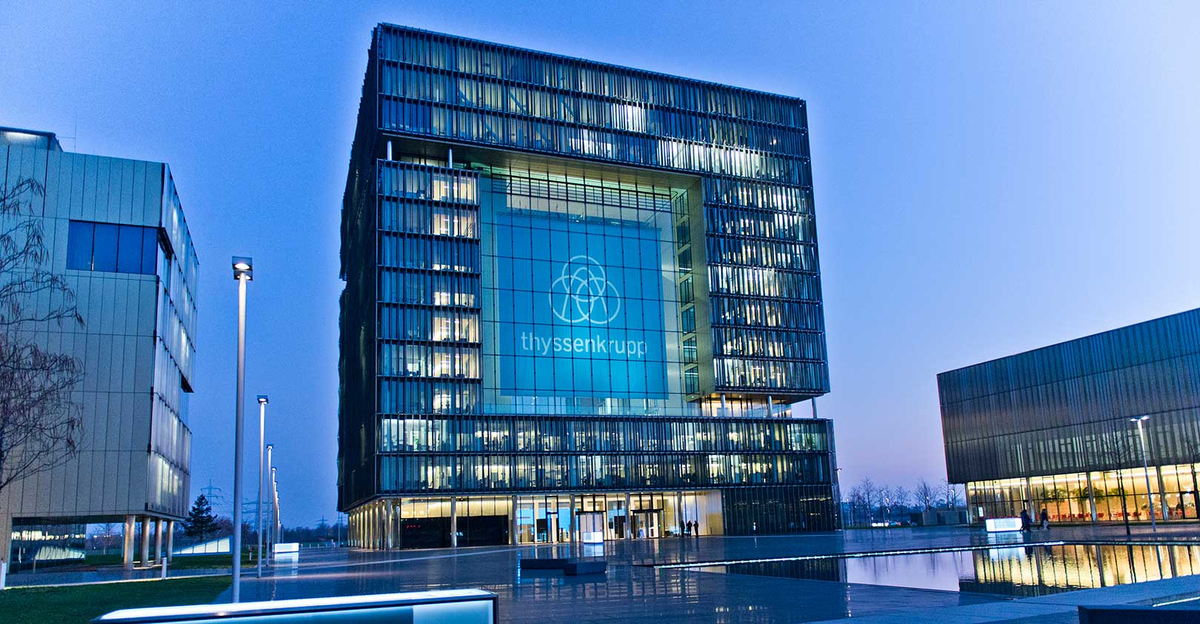Thyssenkrupp will invest more than Eur2 billion ($2 billion) in its first direct reduction plant for low-carbon steel at its Duisburg site in the Ruhr region to accelerate its green transformation, the German steelmaker said Sept. 8.
The company’s executive board approved the project and released the corresponding capital resources for the construction of the plant, which was supported by the supervisory board, the company said, although it added that the major project remained subject to public funding.
The contract for the project is due to be awarded in autumn 2022, with production planned to start in 2026.
The plant will have a capacity of 2.5 million mt/year and will avoid the emission of 3.5 million mt/year of CO2, Thyssenkrupp said.
The company aims to produce 5 million mt/year of low-carbon steel by 2030, cutting emissions by more than 30%, and is aiming to achieve climate neutrality by 2045, it said.
The plant will be the first of four planned at Duisberg as part of Thyssenkrupp’s tkH2Steel transformation project, which will allow the steelmaker to replace the coal-based blast furnace route with direct reduction plants where iron ore is reduced using hydrogen instead of coal.
The plant’s downstream melters will be powered by renewable electricity to produce electric furnace iron comparable to conventional hot metal, which can then be further processed into high-quality flat steels in a subsequent step, the company said previously.
In March, Thyssenkrupp signed a memorandum of understanding with German power company Steag for the supply of renewable hydrogen and oxygen from the adjacent planned HydrOxy Walsum 520-MW electrolyzer.
“The release of this enormous investment comes in the midst of the company’s transformation, in what is also for all concerned an extremely challenging environment,” Thyssenkrupp CEO Martina Merz said.
“We are thus underlining our claim to make a significant and, above all, rapid contribution to the green transformation — also where steel is concerned,” she added.
The company would be reducing the CO2 emissions of its production by just under 20% in the first step, which was 5% of the Ruhr region’s greenhouse gas emissions, Thyssenkrupp Steel Europe Chairman Bernhard Osburg said.
“With today’s decisions, we are continuing to set the pace on our path to climate-friendly steel production,” he said.
The Platts contract DR pellet premium was assessed at $95/dmt for September, on a 65% Fe fines basis, according to S&P Global Commodity Insights data.
— Jacqueline Holman






